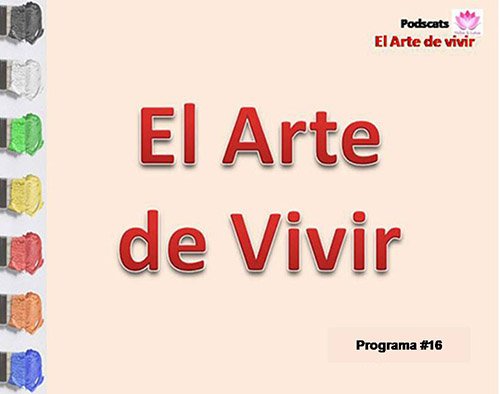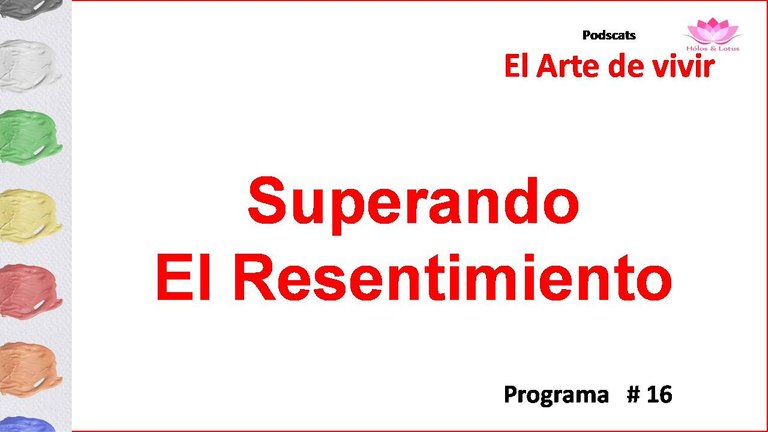
En los podcast de las últimos semanas veníamos hablando de las cosas bellas del sentir, en cambiar nuestra mirada hacia focos que nos hagan sentir mejor y conectar con aquellos que nos llene de mayor bienestar, esta es la visión que nos mueve desde @holos-lotus , sin embargo sabemos que existe lo otro, lo no tan bueno y que las emociones y sentimientos no escapan de ello, como seres integrales que somos no estamos libres de tales sentimientos, que la idea siempre será trabajarlos con ahínco para estar cada día mejor.
En el programa pasado salió un comentario sobre el rencor y nos pareció que en este podcast , Número 16, de anoche 17 de Agosto hablamos sobre este sentimiento profundo y doloroso, así que nos preparamos para hacer de nuestro encuentro una experiencia valiosa para aprender y crecer.
La frase escogida para dar inicio al tema y entrar en calor fue:
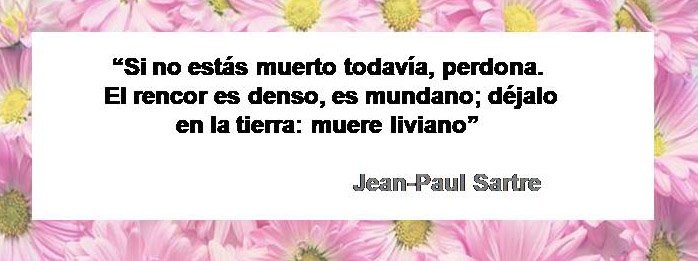
Los comentarios no se hicieron esperar:
@irvinc. Eso de morir liviano es muy sabio. A medida que envejecemos deberíamos soltar tonterías como el rencor y el ego desmedido.
@jcchelme. Es una frase cierta, pero siempre hay rencor en los humanos.
@aguamiel. Nada como estar tranquilo, pero por qué esperar a morir? la invitación es para el momento presente.
@belkisa758. Tremenda frase. El rencor es simplemente un sentimiento estéril, no produce ni siquiera una excusa para decir al otro lo que sentimos. Vivir con rencor es vivir mudo, oprimido, frustrado, con rabia pero contra nadie y contra todo. Nos hace la carga más pesada.
¿Qué es lo que realmente describe el rencor?
la ira, una rabia profunda que se instala en nosotros de manera persistente y que por lo general no es producto de un hecho aislado, sino que situaciones reiterativas de abuso, irrespeto, maltrato van sembrando la semilla de la rabia que va creciendo dando forma al rencor y es lo que hace posible, por ejemplo que la artista Jennette McCurdy se atreva a escribir un libro titulado "Me alegro de que mi mamá murió" donde relata los abusos que sufría desde muy niña por parte de su madre.
De allí que también sea descrito como Re-sentimiento porque su poder es tan fuerte que a cada rato volvemos a él, con nuestros pensamientos repetimos una y otra vez el sentimiento regenerando la herida, haciéndola más profunda y no permitiendo que sane, el rencor nos quita la paz, el equilibrio y por supuesto merma nuestra salud física y mental. Entonces vemos que el pensamiento juega un papel importante en la consolidación de este sentimiento veamos cuáles son estos pensamientos:
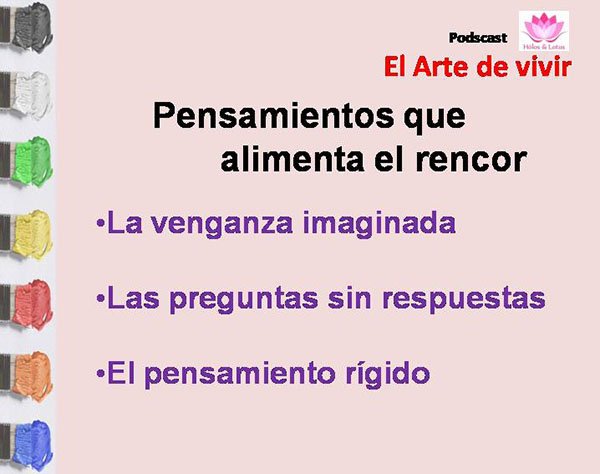
La venganza imaginada
Una de las compañeras más cercana del rencor es el pensamiento y el sentimiento de venganza, “el ojo por ojo” desear fervientemente el mal al otro, que lo ocurra algo similar a lo que hizo, se recurre a la fantasía imaginando todos los males posibles para la persona que consideramos que nos ha hecho daños incluso a veces queremos que Dios se ponga de parte nuestra y decimos frases como: Dios con su sabiduría infinita sabrá castigarlo.
Las preguntas sin respuestas. Con esta técnica autodestructiva vamos, como quien dice, atornillando el sentimiento en lo más profundo y consiste en esa insistencia mental de buscar explicación, preguntarnos por qué el otro actúo del tal o cual forma, aún cuando sabemos, que no vamos a obtener respuesta que solo estamos masticando un pensamiento que como una bola de chicle es indigerible. Las preguntas son necesaria pero lo que buscamos con ellas nos ayudan a avanzar o a anclarnos más.
El pensamiento rígido tiene mucho más que ver con nuestra manera de pensar que con el hecho en sí que produce el rencor, es caer en lo dicotómico, las cosas son buenas o malas, es blanco o negro no aceptando que existe los grises, no se trata de minimizar situaciones sino de darle un valor más justo de tal manera que no nos dejemos afectar por palabras, acciones de otros que abran heridas y que con nuestros pensamientos las profundicemos.
Lo cierto es que con nuestros pensamientos alimentamos el resentimiento y nuestro cuerpo no es inmune a ello en seguida comienza a producir toxinas que van afectando el sistema nervioso, cardiovascular y sobre todo el digestivo.
Por otra parte el rencor está anclado en el pasado y literalmente cuando estamos atados a él no podemos avanzar espiritual ni emocionalmente. Posiblemente una de los mejores consejos que podemos recibir para soltar el rencor sea tomar en cuenta la frase citada de Sartre y como nos señala @aguamiel, hacerla presente porque, definitivamente, el rencor es una carga pesada, un sentimiento que nos encarcela dentro de un dolor que ocupa un espacio que no da cabida a mejores sentimientos y por ende vemos la vida desde ese cristal alejándonos del bienestar y la paz interior.
@miriannalis nos regaló un maravilloso ejercicio, consistente en una serie de preguntas que nos ayudan identificar y profundizar en la emoción para posteriormente reflexionar sobre ello. En una dinámica muy movida nos fue presentando cada lámina y @Yonnathang fue su invitado para responder verbalmente mientras los demás lo hacíamos el chat.
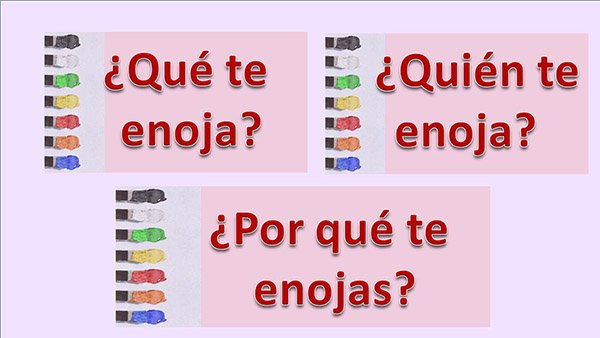
1.- ¿Qué te enoja? permite identificar aquello que nos produce el malestar. Algunos señalaron: la impuntualidad, la corrupción, la irresponsabilidad.
2.- ¿Quién te enoja? Perona, situación, institución, acción que te puede producir ese enojo.
3.- ¿Por qué te enoja? Acá vamos profundizando más, el por qué son los motivos que te producen eso emoción: Porque sientes que pierdes el control sobre los demás o las situaciones, porque juzgas y encuentras que los demás no son como tú…
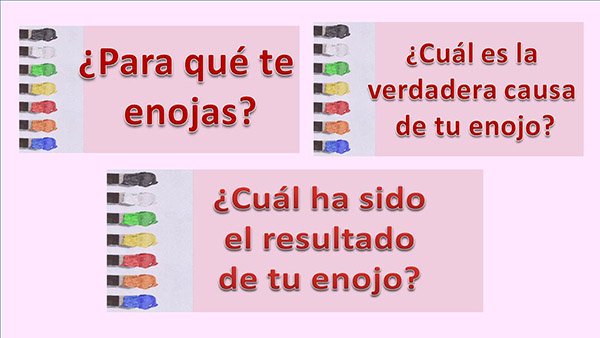
4.- Para que te enojas. Son tus justificadores. Puede ser que con eso demuestres tu poder, busque lograr algo manipulando o asumiendo el papel de víctima.
5.- La verdadera causa del enojo puede estar en el miedo, en las inseguridades en el amor propio o la baja autoestima, entre tantos otros.
6.- Los resultados del enojo tienden a ser negativos para nosotros mismos y para los que están a nuestro alrededor.
En muchas oportunidades cuando realizamos este ejercicio nos damos cuenta que estamos magnificando situaciones, que nos enganchamos en cosas que realmente no son tan vitales como suponemos, al tiempo que nos vamos dando cuenta que profundidad tiene el enojo y si estamos pasando a un nivel más profundo como es el rencor. Superar el enojo, el rencor requiere de un estar atento, de una intención clara y como se señaló en el programa pasado, de voluntad genuina y pura de no querer albergar estos sentimientos, para profundizar en este punto nos presento las siguientes recomendaciones:
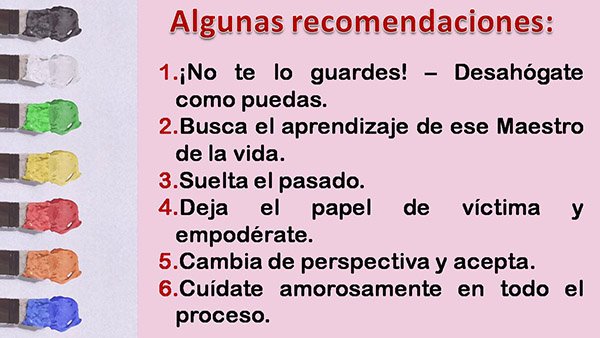
Entre los aspectos en que @mirianna hizo hincapié fue que mantengamos presente si eso que nos enoja lo podemos controlar o si eso no depende de nosotros, entonces lo que si podemos controlar es eso que estamos sintiendo, esas adversidades, esos retos que nos presenta la vida cada día me está diciendo realmente que es lo que tengo que mejorar, que el asunto no está afuera, el problema no es que los otros sean impuntuales, tal vez sea mi nivel de tolerancia.
Comienza a hacerte esas preguntas hasta ver a donde llegas, qué e tiene que ver contigo la impuntualidad que te está mostrando algo de ti que todavía te falta trabajar ¿Para qué? Para que no te dejes robar la paz, para que no te ancles a eso. Cada experiencia de vida es un maestro que llega a ti para aprender algo.
Ya para cerrar hizo un análisis reflexivo de algunos versos de una hermosa canción:
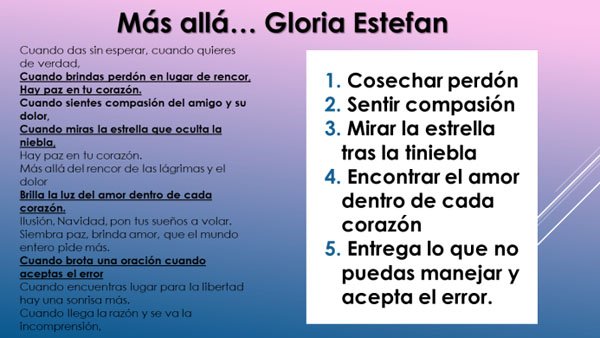
En ella resaltan las estrategias para trabajar el perdón que ofrece la filosofía del Curso de Milagros que trabaja la mente para que llegues a ese perdón, corregir esa idea que tenemos de ver al otro como un pecador o ver en el otro sus pecados, como algo que no se puede superar y verlo como un error. En su interpretación concluye:
Si estas en el rencor no tienes paz. El primer paso es cosechar el perdón porque uno recoge eso que siembra. Si siembras enojo lo que vas a recoger es rencor, si tu cosechas perdón vas a encontrar paz.
La compasión. Cada persona es un mundo, cada persona que está allá afuera tiene una historia que es distinta a la tuya, hay muchas cosas que nosotros no vemos y esto se encuentra relacionado con el punto tres porque todos tenemos un origen santo, por decirlo de alguna manera, un origen que nos vincula con el todo, somos hijo del mismo creador y de alguna forma somos hermanos, por lo que sus respuestas responden a las vivencias y herramientas que tiene , entonces también tenemos que aprender a no tomarnos las cosas personales.
Si logramos traspasar esa niebla del otro, que nos lleva a pensar que vino a hacer algo que me enoja o con quien ya conecte con el rencor o a una situación que me afecta, hay que encontrar esa chispa de luz que comparte conmigo para poder perdonar.
Me tengo que salir de la tiniebla que ven mis ojos físicos y tratar de ir más allá para poder entrar en el perdón y ante la pregunta del por qué encontrar el aprendizaje que hay detrás de eso. Todas las personas que llegan a nuestra vida son nuestros maestros algunos nos enseñan por las buenas y otros nos enseñan, por las malas. Cuando comenzamos a comprender esta dinámica de aprendizaje de vida, de experiencia podemos empezar a soltar ese rencor.
Otro aspecto que hay que trabajar es esa creencia de que cuando perdonamos estamos librando al otro de lo que hizo, desde mi experiencia, el perdón es realmente para nosotros, el aceptar es continuar la vida, cuando perdonamos y nos perdonados soltamos el ancla. Entonces el perdón es para ti, es para librarte de eso que te ata al malestar que no te permite estar en paz, sentirte pleno, próspero, abundante, amoroso, aquello que te limita que te hace creer que no tienes la capacidad ni la posibilidad.
Por esto este es un tema espiritual, porque desde la mente podemos hacer todo este trabajo y podemos ver esa curva que va desde la emoción al odio pero llega un punto en que si no sabes qué hacer con eso y es el punto donde tienes que entregar ese sentimiento y aceptar el error. Hay cosas que pueden ser muy difíciles de superar, de aceptar pero si entendemos que ese pendón es para nosotros, para librarnos de una vida de tristeza, de una vida de amargura, podemos resignificar y darle otro sentido a eso y no tienes que hacerlo solo, hazlo con esa entidad, ese ser, esa energía en la que tú crees y suelta,
decides que ya no quieres vivir más con ese rencor, ya no quieres seguir cargando esa mochila, acepta que somos humanos y todos podemos equivocarnos y todos cometemos errores.
Después de estas intensas y profundas reflexiones la invitación es a realizar el ejercicio y de ser necesario recorrer el camino que nos permita soltar estos sentimientos que nos atan al pasado para poder tener un presente con mayor paz interior.
Gracias Gracias a cada uno de nuestros amigos que nos acompañan y nos nutren con sus comentarios. Nos "vemos" en Quince días.

In English
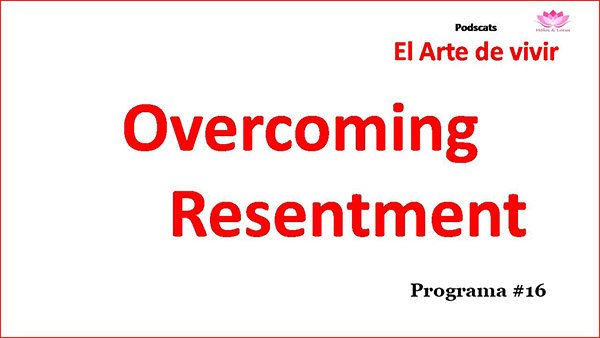
In the podcasts of the last weeks we have been talking about the beautiful things of feeling, in changing our look towards focuses that make us feel better and connect with those that fill us with greater well-being, this is the vision that moves us from @holos-lotus , however we know that there is the other, the not so good and that emotions and feelings do not escape from it, as integral beings we are not free of such feelings, that the idea will always be to work them hard to be better every day.
In the last program there was a comment about resentment and we thought that in this program nº 16 of last night August 17 we talked about this deep and painful feeling, so we prepared ourselves to make our program a valuable experience to learn and grow.
The phrase chosen to kick off the topic and warm up was:

And the comments were not long in coming:
@irvinc That dying light is very wise. As we get older we should let go of nonsense like grudges and overblown ego.
@jcchelme. It's a true phrase, but there's always a grudge in humans.
@aguamiel. Nothing like being calm, but why wait to die...the invitation is for the present moment.
@belkisa758. Tremendous phrase. Grudge is simply a sterile feeling, it doesn't even produce an excuse to tell the other what we feel. To live with rancor is to live mute, oppressed,
frustrated, with rage but against no one and against everything. It makes our burden heavier.
What is it that really describes resentment?
Anger, a deep rage that settles in us in a persistent way and that usually is not the product of an isolated fact, but that reiterative situations of abuse, disrespect, mistreatment are sowing the seed of rage that grows giving shape to resentment
and is what makes possible, for example that the artist Jennette McCurdy dares to write a book entitled "I'm glad my mom died" where she recounts the abuses she suffered since she was a child by her mother.
Hence it is also described as Re-feeling because its power is so strong that we keep returning to it, with our thoughts we repeat over and over again the feeling regenerating the wound, making it deeper and not allowing it to heal, resentment takes away our peace, balance and of course undermines our physical and mental health. So we see that thought plays an important role in the consolidation of this feeling, let's see what these thoughts are:
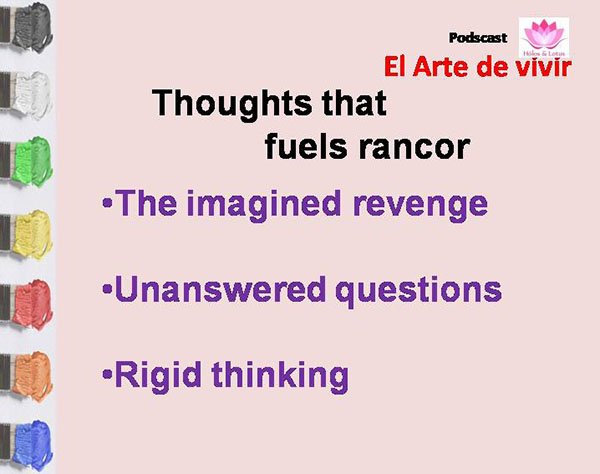
Imagined revenge. One of the closest companions of resentment is the thought and the feeling of revenge, "an eye for an eye" fervently wishing evil to the other, that something similar to what he did happens to him, we resort to fantasy imagining all possible evils for the person who we consider has done us harm, sometimes we even want God to take our side and we say phrases like: God with his infinite wisdom will know how to punish him.
Questions without answers. With this self-destructive technique we are, as they say, screwing the feeling in the deepest and consists in this mental insistence of looking for an explanation, asking ourselves why the other acted in this or that way, even when we know that we are not going to get an answer, that we are only chewing a thought that like a ball of gum is indigestible. Questions are necessary, but what we are looking for with them helps us to move forward or to anchor ourselves more.
Rigid thinking has much more to do with our way of thinking than with the fact itself that produces resentment, is to fall into the dichotomy, things are good or bad, it is black or white not accepting that there are grays, it is not about minimizing situations but to give a fairer value so that we do not let ourselves be affected by words, actions of others that open wounds and that with our thoughts we deepen them.
The truth is that with our thoughts we feed resentment and our body is not immune to it and immediately begins to produce toxins that affect the nervous, cardiovascular and especially the digestive system.
On the other hand, resentment is anchored in the past and literally when we are tied to it we cannot advance spiritually or emotionally. Possibly one of the best tips we can receive to let go of resentment is to take into account the quoted phrase of Sartre and as @aguamiel points out, to make it present because, definitely, resentment is a heavy burden, a feeling that imprisons us in a pain that occupies a space that does not accommodate better feelings and therefore we see life from that glass away from the welfare and inner peace.
@miriannalis gave us a wonderful exercise, consisting of a series of questions that help us identify and deepen the emotion and then reflect on it. In a very lively dynamic, she presented each slide and @Yonnathang was her guest to respond verbally while the rest of us did it in the chat.
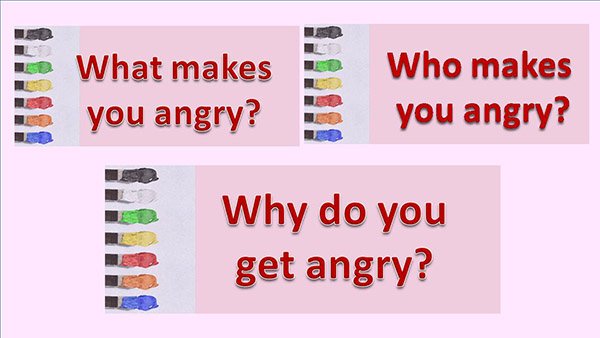
1.- What makes you angry? allows us to identify what causes us discomfort. Some pointed out: unpunctuality, corruption, irresponsibility.
2.- Who makes you angry? Person, situation, institution, action that can make you angry.
3.- Why does it make you angry? Here we go deeper, the reasons that produce this emotion: Because you feel that you lose control over others or situations, because you judge and find that others are not like you...
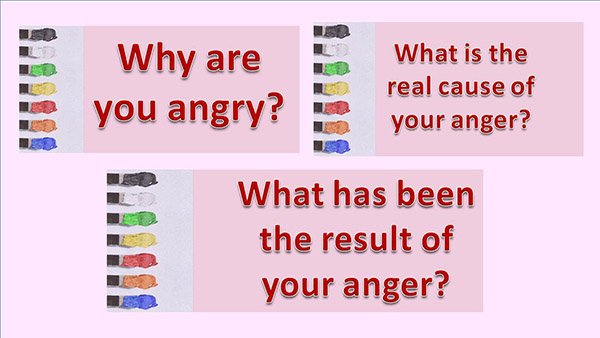
4.- Why you get angry. They are your justifiers. It may be that with that you demonstrate your power, seek to achieve something by manipulating or assuming the role of victim.
5.- The real cause of the anger may be in fear, insecurities in self-esteem or low self-esteem, among many others.
6.- The results of anger tend to be negative for ourselves and for those around us.
In many opportunities when we do this exercise we realize that we are magnifying situations, that we get involved in things that really are not as vital as we suppose, while we realize how deep the anger is and if we are moving to a deeper level such as resentment. Overcoming anger, resentment requires being attentive, a clear intention and as noted in the last program, genuine and pure will of not wanting to harbor these feelings, to deepen this point I present the following recommendations:
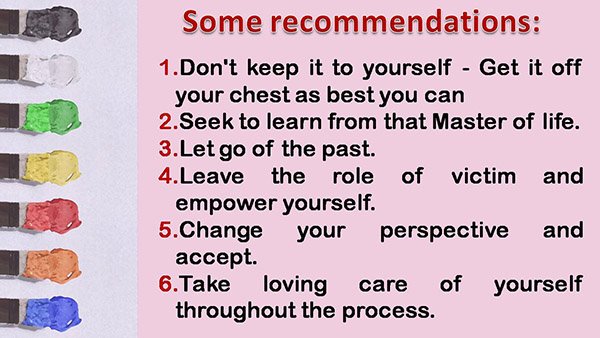
Among the aspects that @mirianna emphasized was that we keep in mind if that which angers us we can control it or if that does not depend on us, then what we can control is that which we are feeling, those adversities, those challenges that life presents us every day is really telling me that is what I have to improve, that the issue is not outside, the problem is not that others are unpunctual, maybe it is my level of tolerance.
Start asking yourself these questions until you see what you are getting at, what does lateness have to do with you that is showing you that you still need to work on something. So that you do not let yourself be robbed of peace, so that you do not anchor yourself to it. Every life experience is a teacher that comes to you to learn something.
In closing, he made a reflective analysis of some verses of a beautiful song:

In it they highlight the strategies to work forgiveness offered by the philosophy of the Course in Miracles that works the mind so that you get to that forgiveness, correct that idea that we have of seeing the other as a sinner or see in the other their sins, as something that cannot be overcome and see it as a mistake. In his interpretation he concludes:
If you are in resentment you have no peace. The first step is to reap forgiveness because you reap what you sow. If you sow anger what you will reap is resentment, if you harvest forgiveness you will find peace.
Compassion. Each person is a world, each person out there has a story that is different from yours, there are many things that we do not see and this is related to point three because we all have a holy origin, so to speak, an origin that links us with the whole, we are children of the same creator and somehow we are brothers, so your answers respond to the experiences and tools you have, then we also have to learn not to take things personally.
If we manage to go through that fog of the other, which leads us to think that he came to do something that angers me or with whom I already connect with resentment or a situation that affects me, we must find that spark of light that he shares with me to be able to forgive.
I have to get out of the darkness that my physical eyes see and try to go beyond it to be able to enter into forgiveness and before the question of why find the learning that lies behind it. All the people who come into our lives are our teachers, some teach us the good way and others teach us the hard way. When we begin to understand this dynamic of life learning, of experience, we can begin to let go of that resentment.
Another aspect that needs to be worked on is the belief that when we forgive we are freeing the other person from what he/she did, from my experience, forgiveness is really for us, to accept is to continue life, when we forgive and are forgiven we let go of the anchor. So forgiveness is for you, it is to free yourself from that which binds you to the discomfort that does not allow you to be at peace, to feel full, prosperous, abundant, loving, that which limits you and makes you believe that you do not have the capacity or the possibility.
That is why this is a spiritual issue because from the mind we can do all this work and we can see that curve that goes from emotion to hate but there comes a point when you do not know what to do with it and that is the point where you have to surrender that feeling and accept the mistake. There are things that can be very difficult to overcome, to accept but if we understand that this banner is for us, to free us from a life of sadness, from a life of bitterness, we can resignify and give another meaning to that and you do not have to do it alone, do it with that entity, that being, that energy in which you believe and let go. Decide that you no longer want to live with that bitterness, you no longer want to carry that backpack, accept that we are human and we can all make mistakes and we all make mistakes.
After these intense and deep reflections, the invitation is to do the exercise and if necessary to walk the path that allows us to let go of these feelings that bind us to the past in order to have a present with greater inner peace.
Thank you to each of our friends who join us and nurture us with their comments. See you in two weeks.

Translated with www.DeepL.com/Translator (free version)
Fuente de imágenes: Archivo personal trabajado en PowerPoint - Frase
